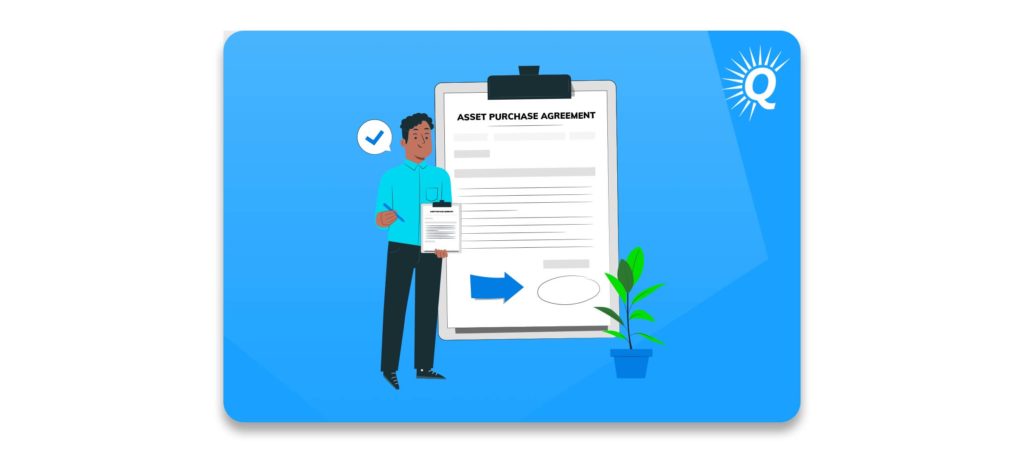Topics:
Never Miss a Beat - Get Updates Direct to Your Inbox
FILTER:


How to Evaluate Potential Buyers When Selling Your Online Business
By Ian Drogin
Selling your online business is a big decision. More than likely, you’ve put in years of hard work and dedication to build an asset you’re truly proud of. With so much invested, you want to be as certain as possible that the person you sell to is qualified to carry on your life’s work. Therefore, it’s important to understand how to evaluate potential buyers when selling your online business.
There are a lot of elements to consider when evaluating buyers. Not only do you want to secure a favorable purchase price and deal terms, but you also want to ensure that you’re working with an honest buyer who knows what they’re doing.
In this article, we discuss the key considerations you should pay attention to when evaluating potential buyers for your online business. By establishing clear criteria and knowing what to look for, you’ll be well-positioned to negotiate a great deal with the right buyer.


What to Expect When Selling Your Online Business
Before diving into the specific criteria to look for when evaluating buyers, it’s important to have an understanding of the selling process. As a seller, you should expect to go through several distinct steps when working with an Advisor to sell your online business. These include:
- Getting a business valuation
- Signing an engagement letter
- Creating the marketing package
- Listing your business for sale
- Receiving offers and evaluating buyers
- Signing an Asset Purchase Agreement
- Completing due diligence
- Closing the deal
- Completing the training and transition period


Getting a Business Valuation
The first step involved in the sales process is to get a valuation. At Quiet Light, we offer free valuations to provide you with a clear understanding of your business’s worth. We also help you identify opportunities for improving your business’s performance, thereby increasing its value.
In some cases, the valuation process reveals a laundry list of items for you to address before going to market. By working closely with an Advisor to prepare for a successful exit, you can ensure that your business is fully prepared to impress in the acquisition marketplace.
Thinking of Selling Your Business?
Get a free, individually-tailored valuation and business-readiness assessment. Sell when you're ready. Not a minute before.
Signing an Engagement Letter
If you decide to move forward with selling your business, the next step is to sign an Engagement Letter with a Business Advisor or Business Broker. Essentially, the Engagement Letter spells out the terms of the working relationship and fee structure.
Creating the Marketing Package
It’s crucial to have a well-constructed marketing package to show potential buyers. This is something an Advisor can provide invaluable support on.
Your marketing package contains all key information regarding your business, including all financial information and a “seller interview”. If you’re selling an Amazon FBA business, it will contain Seller Central reports, inventory reports, ad-performance information, and other revenue and expense information.
“Your marketing package should provide a thorough and transparent overview of your business’s story.”


Shopify stores, content sites, and SaaS companies should provide detailed traffic data, email subscriber data, and all relevant revenue and expense information. If your business has been featured in any reputable media outlets, that should be included as well.
In essence, your marketing package should provide a thorough and transparent overview of your business’s story.
Listing Your Business for Sale
Once your business is ready to show to potential buyers, it’s time to list it for sale. This is the moment your prized asset is on display for the world to see.
When you work with a reputable Advisor, your business listing is emailed to their extensive list of qualified buyers. This significantly streamlines the process of connecting with high-quality prospects.
Receiving Offers and Evaluating Buyers
Once your business listing is live, potential buyers should start showing interest. During the process, your Adviser works to vet buyers and present you with all interested parties. If you decide to speak with a potential buyer, your Advisor will arrange a phone call for the two of you to discuss your business. This is where important elements of the buyer evaluation process take place (more on this in the next section).
If an interested buyer decides to make an offer, you’ll receive a Letter of Intent (LOI). An LOI outlines all of the key details regarding the deal, including the purchase price, deal terms, and closing date. In some cases, there’s some back-and-forth that takes place between the buyer and seller in order to arrive at a deal that is agreeable to both parties. While an LOI isn’t legally binding, it’s generally used as a key reference point for crafting the Asset Purchase Agreement.


Signing the Asset Purchase Agreement
The Asset Purchase Agreement (APA) is the master of all documents during the acquisition process. It specifies all details that pertain to the deal, including assets, financing terms, and purchase price, among other items. Given its importance, it’s wise to have your attorney review the APA before its executed.
Completing Due Diligence
The final step before closing is to complete due diligence. During the due diligence process, the buyer will seek to verify all claims made by you, the seller. Typically, this is done using third-party documentation. As the seller, be prepared to provide any and all information regarding your revenues, expenses, Google analytics organic traffic reports, Google ads metrics, each financial statement, monthly and annual profit, digital asset ownership verification, and other business details.
Closing the Deal
Once the buyer signs off on due diligence, it’s time to close the deal.
To close the deal, the buyer transfers the purchase funds into an escrow account. Then, you, the seller, transfer all included business assets to the buyer. This often includes online accounts, inventory, trademarks, patents, and other digital assets. After both parties confirm that all assets have been transferred, the escrow agent releases the purchase funds to you. This is where the entire process comes together and feels very real. Your business has been sold!


Transition and Training
The last step in the acquisition process is to complete the transition of ownership and train the buyer.
During this stage, you must provide the buyer with support and guidance as they take over the business. This can include teaching them about the business’s operations, helping them get up to speed with the business’s marketing strategy, and learning any industry-specific skills they should understand. Once the training period is complete as outlined in the APA, your contractual responsibilities are over. At that point, you may agree to respond to emails and answer any remaining questions that pop up, but you are no longer tied to the business.
Buy a Profitable Online Business
Outsmart the startup game and check out our listings. You can request a summary on any business without any further obligation.
Key Considerations When Evaluating Buyers for Your Online Business
During the initial stages of getting a business valuation and creating your marketing package, you’re not going to be ready to evaluate potential buyers. However, once your business listing is live and buyers start inquiring to learn more, you’re going to want to pay attention to who’s interested in your business.
To prepare for the process, it’s a smart idea to establish some clear criteria to evaluate multiple buyers and deals. A few key considerations include:
- Industry skills and experience
- Certainty of closing
- Funding sources
- Trust and respect
- Purchase price and deal terms


The Importance of Skills and Experience
Even though you might not be legally responsible for the success of your business after selling, you should still want it to do well.
First of all, you’ve spent a lot of time and energy building your business, so don’t you want it to be in good hands? For most sellers, it’s important to find a buyer who has the ability to lead it to success.
Secondly, if the deal involves seller financing, you have an additional incentive to ensure that the business succeeds. Although the buyer would still be legally responsible for fulfilling the promissory note if the business were to plummet, a steep decline could still threaten the buyer’s financial ability to uphold the financing agreement. In such a situation, a default could create immense headaches and stress for you as the seller. If you sell to someone who leads the small business to success, the risk of a default on seller financing can be significantly reduced.


To get an idea of a potential buyer’s skillset, you should seek to ask specific questions about their experiences and knowledge. Of course, the questions will vary greatly based on the needs of your business, but a few areas to think about include:
- Digital marketing
- Financial and cash flow management
- SEO and content strategy
- Supply chain management
- Product development
- SaaS business leadership skills
- Team building and management
- Previous experience running a similar small business
In addition to asking strategic questions that reveal their skills and experience, it’s important to pay attention to the questions that they ask. Do their questions suggest that they understand the business model? Is it clear that they know how to identify growth opportunities and execute a marketing strategy? There’s a lot that can be told by observing a potential buyer’s line of thinking.
Often, if you’re working with a strategic buyer, they’ll be highly skilled and experienced.
“To get an idea of a potential buyer’s skillset, you should seek to ask specific questions about their experiences and knowledge.”


Certainty of Closing
It’s certainly exciting to receive an amazing offer above your asking price. However, even the best possible deal is worthless if it doesn’t come to fruition.
As a seller, it’s important to always be paying attention to signs that point to a buyer’s ability and willingness to close the deal. It’s not just about the number they put on the table. Rather, it’s about the likelihood that they’ll actually follow through and complete the transaction. If you only focus on the monetary offer, you risk overlooking clear signs that the deal could fall apart.
Therefore, pay attention to indications of how serious the buyer is in moving forward. Do they follow through with what they say during negotiations, or do they constantly backtrack and seek to renegotiate the smallest of details? Do they communicate in a timely manner or are they slow to respond to your emails? Are they consistently interested and enthusiastic about the deal, or do their emotions bounce all over the place?
“If you only focus on the monetary offer, you risk overlooking clear signs that the deal could fall apart.”
Additionally, in order to work with a buyer who has the ability to close, it’s important to pay attention to their funding sources…
Funding Sources
Even if you find the most skilled and trustworthy buyer in the world, you still need to make sure their funding sources are reliable. Otherwise, you risk investing significant time and energy into a deal, only to have it collapse when it’s time to transfer funds. To help ensure everything moves smoothly, it’s best to verify proof of funds before you get too far. If the buyer has sufficient cash on hand to cover the purchase, both parties are in great shape.
“Check to see if the financing party has experience funding online business acquisitions.”
On the other hand, if the buyer is going to be using outside financing to acquire your small business, it’s a smart idea to dig a bit deeper. Check to see if the financing party has experience funding online business acquisitions. If they don’t, it may be wise to confirm early in the process that they’ll finance the acquisition. During those communications, it’s important to get confirmation from the actual decision-makers.


Trust and Respect
Like in all business engagements, it’s important to sell to someone with whom you share mutual trust and respect.
Throughout the process, pay attention to how the prospective buyer conducts themself. Notice if they follow through with their word, treat you fairly, and demonstrate respect. If they don’t, it might be worth passing them up, even if they’re willing to make an offer. Remember, you’re going to need to engage with them on legal contracts, money transfers, and through the training and transition period.
In addition to minimizing risk, the process is simply more enjoyable when there’s mutual goodwill between the buyer and seller. Not to mention, when you sell, you’re going to pass off all of your customer relationships to them. Don’t you want your customers to be in good hands?


Purchase Price and Deal Terms
Lastly, every seller wants to receive maximum value when exiting. Therefore, it only makes sense to consider the purchase price and deal terms that potential buyers bring to the table.
The purchase price is pretty straightforward: higher is better. However, each seller may have their own preference when it comes to deal terms. More than likely, the size of your business will play a role in determining the deal terms that buyers propose.
Some sellers prefer to receive all cash at closing. Others prefer to receive a substantial down payment at closing while maintaining a stake in the company in order to benefit from future growth. When it comes to deal terms, there isn’t one definitive deal structure that is universally “the best.” Each seller should consider their own goals, and then determine what deal terms are best for helping achieve them.
Red Flags in Buyers When Selling Your Online Business
In addition to knowing how to identify a qualified buyer, it’s important to know what to avoid. Here are three red flags to pay attention to when evaluating potential buyers:
- Questionable funding sources
- They think they’re doing everyone a favor
- Don’t have the skills or experience to succeed


Questionable Funding
If a buyer can’t provide proof of funds or a legitimate means of financing the deal, be wary. If they don’t have access to the required capital, then it’s best to not waste your time.
As mentioned above, if they’re using third-party financing, it’s a good idea to examine the source. Be sure to verify funding with the true decision-makers of the lending institution. Additionally, try to figure out if there are any lending contingencies early on so the deal doesn’t fall apart at the last minute.
“If a buyer can’t provide proof of funds or a legitimate means of financing the deal, be wary.”
The more clarity you have into the buyer’s financing strategy, the more confident you can be that the deal will close.
Arrogance and Disrespect
Deals tend to go more smoothly (and are more enjoyable) when both parties treat one another with respect.
If a potential buyer acts like their doing you a favor by speaking with you, that could be a telling sign of what the process might look like. You don’t want to do business with someone who doesn’t treat you well! When you sell to someone, you’ll need to share personal information, business details, and time and energy with them.
“Deals tend to go more smoothly (and are more enjoyable) when both parties treat one another with respect.”


A Lack of Skills and Experience
If potential buyer appears to be ill-equipped to run your business, you should strongly reconsider selling to them. At best, they’ll realize they’re not up for the challenge and back out of the deal. At worse, they’ll acquire your business and drive it into the ground.
If your questions reveal that they’re completely unfamiliar with website properties and don’t have the desire to learn, move on. For example, if your Ecommerce business relies on the business owner managing influencer marketing activities, you certainly don’t want to sell to someone who has no clue about social media.
Evaluation Checklist for Online Business Buyers
To summarize the key points in this article, there are several items you can add to your “evaluation checklist” when vetting a small business owner interested in acquiring your business. These include:
- Are they trustworthy and respectful?
- Can they provide proof of funds or verify that legitimate financing is available (i.e., an SBA loan)?
- Do they have the skills and experiences required to succeed?
- Are the deal terms and purchase price favorable?
- Do they instill confidence that they’re able and intent on closing the deal?
By doing your research and asking the right questions, you can greatly reduce the chances that your deal will fall apart, including during due diligence. If you choose to work with an experienced Advisor, they can apply their industry experience to help you vet buyers, find the right purchasing party, and negotiate a great deal.
Thinking of Selling Your Business?
Get a free, individually-tailored valuation and business-readiness assessment. Sell when you're ready. Not a minute before.





